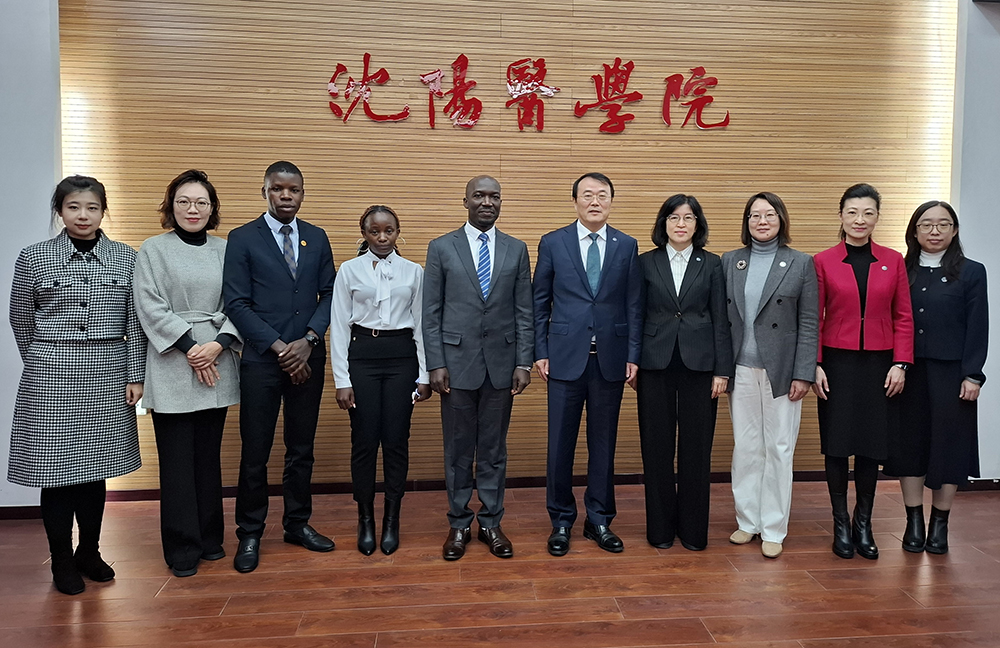Uganda’s BRICS Partnership Set for December Formalization, Signaling Strategic Economic and Security Ties

Uganda is set to formalize its partnership with BRICS this December in Kampala. Foreign Affairs Minister Gen. Jeje Odongo, meeting with Russian Foreign Minister Sergey Lavrov at the Russia-Africa Partnership Forum in Sochi, discussed Uganda’s entry into BRICS as a partner state.

The Ugandan and Russian delegation meeting on the sidelines of the First Ministerial Conference of the Russia-Africa Partnership Forum in Sochi on November 9, 2024. (Photo credit: Uganda’s foreign affairs ministry)
Uganda’s partner status with the intergovernmental organization BRICS is set to be sealed in Kampala this December.
On Saturday, foreign affairs minister, Gen Jeje Odongo, met with his Russian counterpart Sergey Lavrov on the sidelines of the Russia-Africa partnership forum in Sochi.
Lavrov sought Uganda’s consent to finalize the admission of the East African country into the BRICS as a partner state.
BRICS, whose membership has been growing, is a forum for co-operation among a group of leading emerging economies.
In 2006, Brazil, Russia, India and China created the ‘BRIC’, with South Africa joining in 2010 to make it ‘BRICS’.
The group was designed to bring together the world’s most important developing countries to challenge the political and economic power of the wealthier nations of North America and Western Europe.
Ethiopia in eastern Africa is the only full member of the BRICS and was admitted at the beginning of 2024 alongside Egypt and Iran. That means they enjoy the voting rights.
In Sochi on Saturday, Lavrov informed Odongo that Russia supported Uganda’s candidature to the BRICS for not only its friendly position with the world’s largest country by area, but also its commitment to regional and international issues.
“I thank you for accepting our invitation to come to this Ministerial Forum of Russia-Africa Partnership which is being convened on the basis of the agreement reached last year at the Russia-Africa Summit in St Petersburg, where we highly appreciated the participation and interventions of President Yoweri Museveni,” Lavrov said while welcoming Uganda’s delegation.
The two-day conference drew some 1,500 delegates, including more than 40 ministers from Africa.
On the BRICS matter, Odongo said he told his Russian counterpart that he is “consulting with my President and once we have done our consultations, I will revert back”.
Uganda together with 12 other countries were added to the bloc this year in October during the three-day annual BRICS summit in the Russian city of Kazan.
Russia, which took the rotating presidency of the group this year, will hold consultations with the partner countries to make membership of the BRICS official.
Uganda was the only country preferred by the BRICS in the East African Community region despite being a smaller economy compared to countries such as Kenya.
The other countries that were admitted as partner states include Belarus, Bolivia, Cuba, Indonesia, Kazakhstan, Malaysia, Nigeria, Thailand, Turkey, Uzbekistan and Vietnam.
As per the BRICS framework, these countries will engage in negotiations with the president of BRICS to assess their readiness to full-fledged BRICS membership.

Russian foreign affairs minister, Sergey Lavrov (R) welcoming his Ugandan counterpart Jeje Odongo in Sochi. (Photo credit: Uganda’s foreign affairs ministry)
Meanwhile, Lavrov lauded President Museveni for being very vocal in avouching the principles of justice, mutual respect and mutual interest in “our” international affairs.
“We co-operate with our African friends, including Uganda, on implementation of the declarations and plan of action adopted last year in St Petersburg,” he said.
“We highly appreciate our co-operation at the United Nations and other multi-lateral forums to hold and respect balanced business in international affairs.”
Lavrov also hailed Uganda’s sound role in peacemaking efforts in the African Union on Somalia, South Sudan, the Democratic Republic of Congo and the Great Lakes Region in general.

Uganda-Russia
BRICS: How will Uganda benefit?
Anton Kobyakov, Russia’s presidential advisor and organising committee executive secretary, said the benefits include closer economic co-operation, free flow of innovation and information, easier cross-border movement and generally improved cross-border business operations.
“We shall support Uganda in many projects and the other BRICS-friendly countries,” he said.
Kobyakov had earlier stated that Russia is ready to provide security for African countries, having already signed 33 agreements on military-technical co-operation.
“For Russia, the role of a security provider for the countries of the African continent is a practical, vital necessity,” he said.
Minister Odongo — who was accompanied by Moses Kizige, Uganda’s Ambassador to Russia, among others — commended the cordial bilateral relations between Uganda and Russia.
“Our discussion with Lavrov included formalization of our relationship through signing memorandums of understanding and we have agreed that we will have an inter-governmental commission meeting some time in December in Kampala through which we will be able to discuss quite several issues,” he said.
The Kampala discussions will centre on trade, business, technology transfer and consultations at bilateral level for purposes of a common understanding.
“Of course, I was also able to raise in the light of a growing Russian economy the possibility of Ugandans coming to work in Russia in order to contribute to our growing economy. And I was pleasantly informed that we need to conclude that matter when we meet in Kampala next month,” said Odongo, who also met with delegations from Ethiopia and Zambia on the sidelines of the forum.
The Ethiopian delegation led by foreign minister, Gedion Timotheos, discussed with Uganda the question of the future arrangement with troop-contributing countries as far as Somalia is concerned.
“We agreed that the best forum for us to discuss that should be a summit and they expect Uganda to organize a summit of what are now called Troop Contributing Partner States,” said Odongo.
The other area was the sharing of the Nile waters in light of the controversy around the grand dam in Ethiopia and the forthcoming cultural festival of the Atekere people in Uganda.”
Uganda, together with Zambia, agreed deepened co-operation on food security, trade, climate change interventions, among other things.







